Speaking Technically: How the Climate Crisis is Driving a Nutrition Crisis
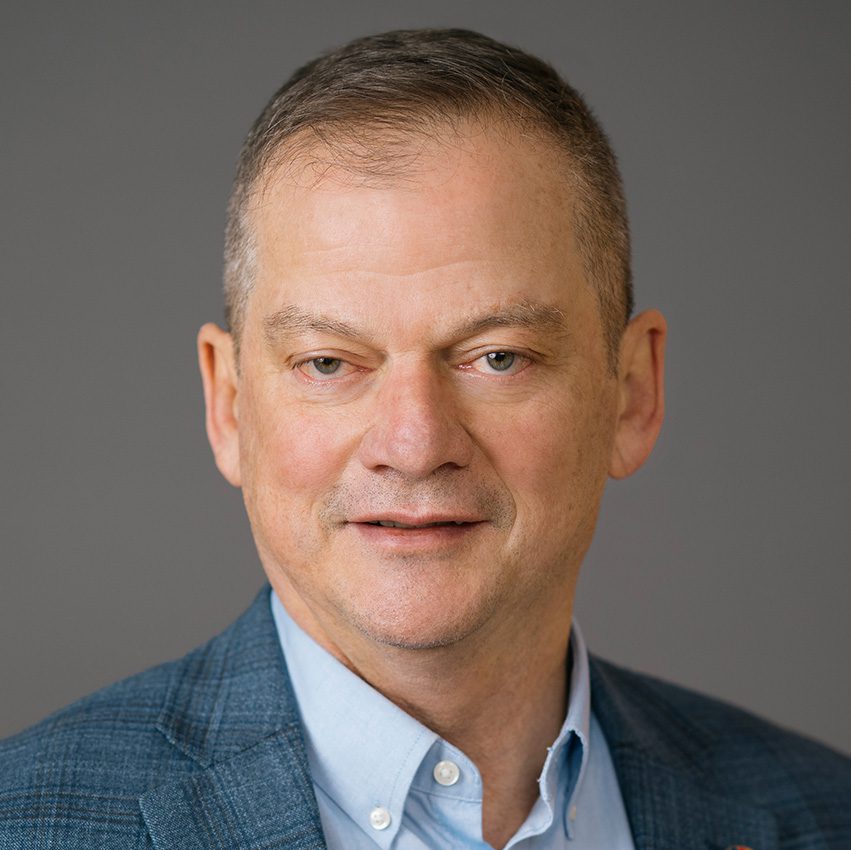

We recently spoke to Chief Program Officer Shawn Baker and Transforming Lives Program Director Philomena Orji about how the climate crisis is driving a nutrition crisis worldwide. Shawn leads Helen Keller’s efforts to strengthen food and health systems using scientifically proven solutions that are feasible, scalable, and equitable. Previously Helen Keller’s Country Director for Nigeria, Philomena now leads Transforming Lives through Nutrition, which aims to improve nutrition for women and children in 12 countries in Africa and Asia. Philomena is based in Abuja, Nigeria, and Shawn is based in Dakar, Senegal.
What do you mean when you say, “the climate crisis is a nutrition crisis”?
Shawn Baker: Broadly speaking, the climate crisis is undermining every system that families rely on to nourish mothers and children. Food, health, and social protection systems are not being supported to address increasing rates of malnutrition, which will lead to more suffering and deaths of young children. The climate crisis exacerbates underlying inequities, and, at the end of the day, the persistence of malnutrition is fundamentally a crisis of equity. And the most egregious inequity is that those children whose lives and futures are imperiled from malnutrition linked to the climate crisis have contributed nothing to climate change.
Philomena Orji: Extreme weather is reducing crop yields, especially for staple crops that people depend on, which leads to increased food prices. This makes it more difficult for the poorest and most vulnerable families to afford healthy foods and they may end up malnourished as a result.
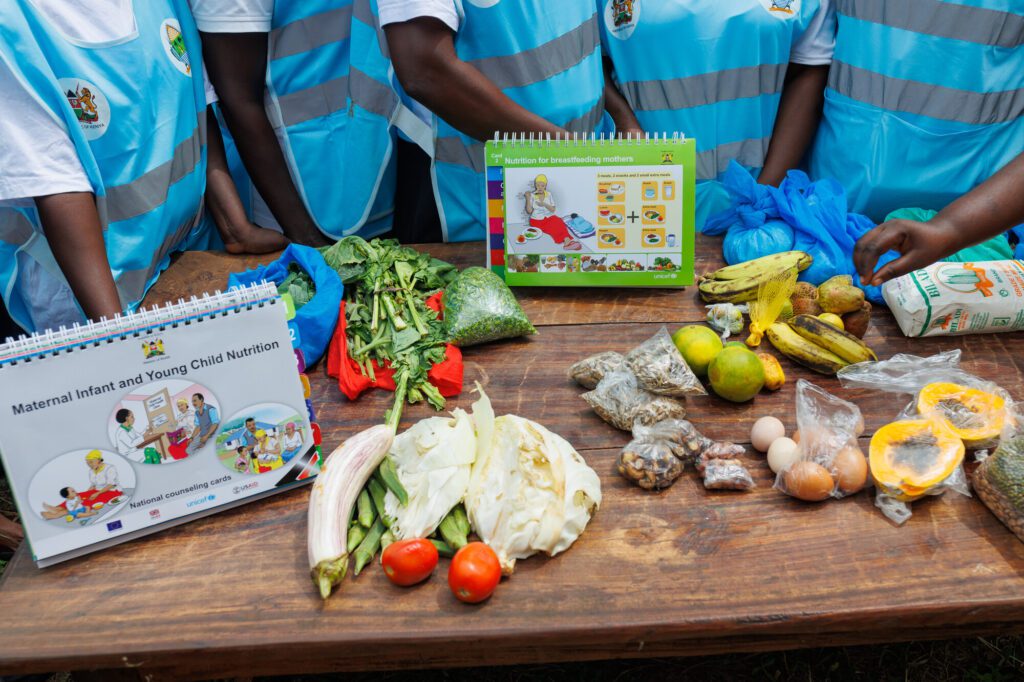
What impact are we seeing in Nigeria?
Philomena: We are experiencing erratic rainfalls leading to droughts and then flooding. The extreme weather destroys crops, cuts farmers off from markets, and causes food spoilage. There are clashes between farmers and pastoralists over land for grazing animals in the northern part of the country and people are being displaced. All of this is affecting crop yields and food inflation is over 40 percent.
Speaking with another mother recently, she said her family is currently doing “one zero one”, which is a Nigerian expression that refers to eating breakfast, skipping lunch, and then eating dinner. She worried that if food scarcity and prices continue to increase, they will be forced to turn to “zero one zero”, meaning eating only one meal a day. So, you can just imagine the implications for women and their children.
How is Helen Keller helping families access and maintain good nutrition despite extreme weather?
Shawn: When food prices increase, low-income households often have to settle for filling foods over nutritious ones. In Senegal and other countries in West Africa, for example, we’re working with local food processors to ensure that staple foods and even condiments are fortified, meaning they have essential nutrients added to them. We’re also helping ensure the health system can deliver lifesaving nutrition services at scale and reach those populations most at risk.
Philomena: In Nigeria, Helen Keller is first and foremost a nutrition organization. We’re supporting evidence-based interventions to improve nutrition for women and children. In addition to supporting access to essential nutrients and malnutrition screening and treatment, we’re helping families learn to grow healthy foods with climate-smart agricultural techniques and feed their children a nutritious diet using local foods. We’re also advocating to the government to develop and implement policies to support vulnerable households to access healthy foods.
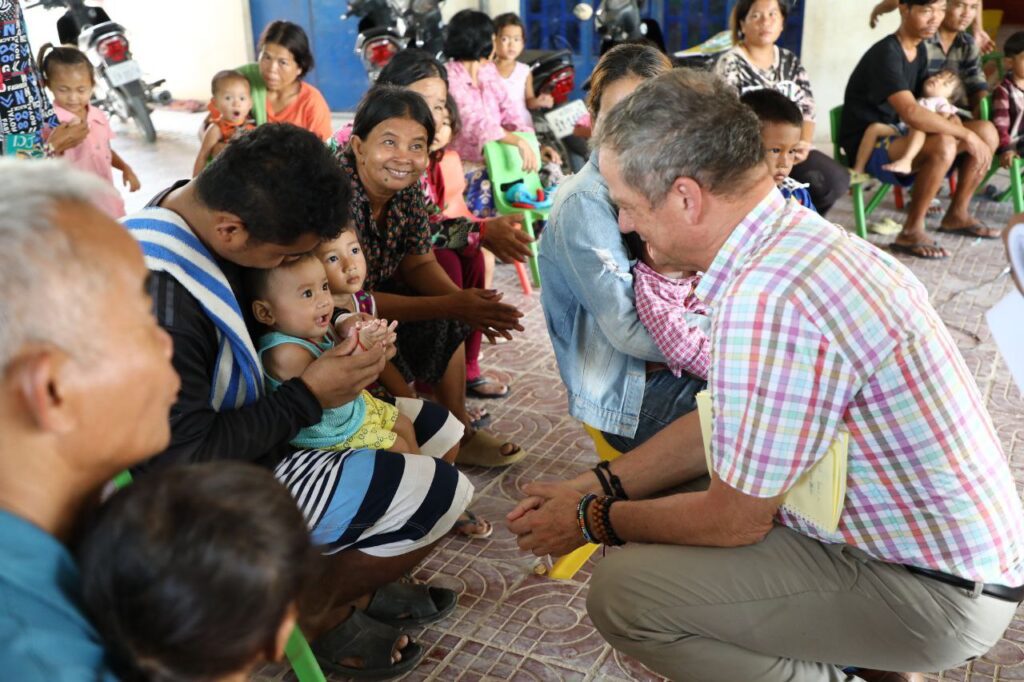
What is the impact we’re seeing on children’s nutrition at a global level?
Shawn: The climate crisis is threatening to wipe out the gains we’ve made in nutrition across the globe. For example, a 2022 study showed that a two-degree Celsius increase in mean temperatures in West Africa would basically reverse all the progress we have made in nutrition in the region.
You can see devastating evidence like this around the world. Last year, the Chittagong Hill Tracts in Bangladesh experienced massive flooding which destroyed crops and facilities delivering nutrition services. Mozambique’s Tete Province, potentially a breadbasket for that part of Africa, is going through a devastating drought. Kenya had been subjected to repeated years of droughts and this year has been pummeled with extreme flooding. It’s these extremes, from extreme heat to extreme drought to extreme rainfall that are very difficult for anyone to adapt too and directly affect the food system. Here at home in West Africa, every day I am reading reports of catastrophic flooding in Burkina Faso, Mali, and Nigeria.
What do you mean by climate-smart agriculture?
Shawn: There are a whole host of technologies and practices that could be called “climate smart”. Many of them build on traditional knowledge, such as zai holes and half-moons, which are techniques to rehabilitate degraded soils. They include using plant varieties that are resistant to drought, floods, or extreme heat and diversifying the types of crops being grown, including expanding to tree crops. There are also techniques to harvest rainwater so farmers can irrigate crops during dry periods.
We are part of a global movement to bring more research and value to traditional crops that are nutrient-rich and more resistant to climate change – the Vision for Adapted Crops and Soils. Farmers we work with have incredible traditional knowledge of how to farm in these environments. We can build on both their traditional knowledge and these emerging climate-smart practices to ensure they can continue growing nutritious food and earning a living during these troubling times.
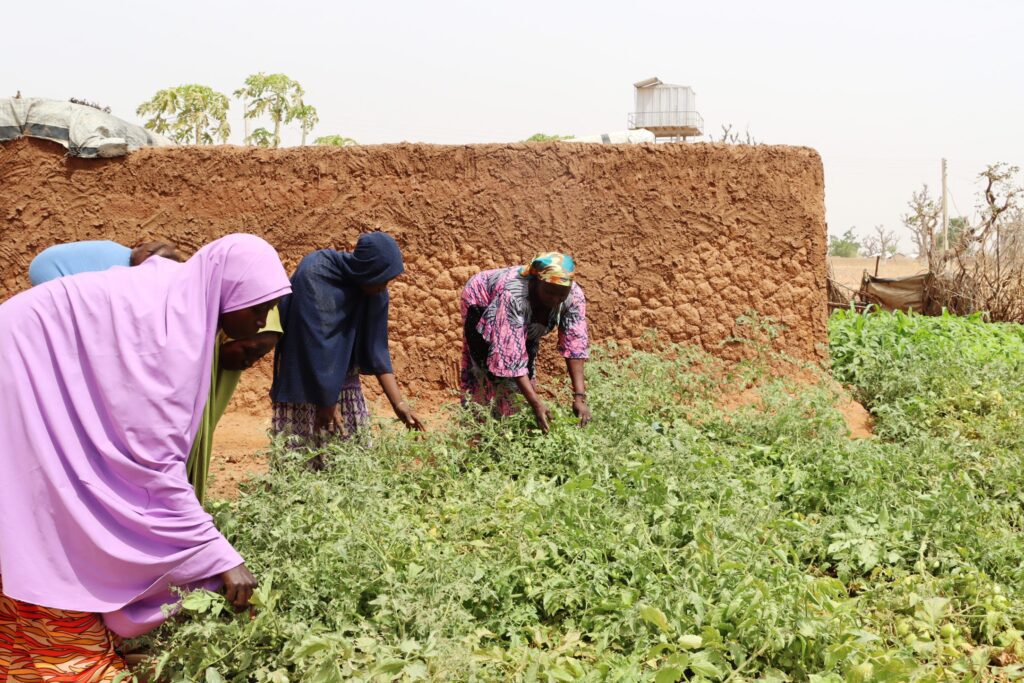
What else should the international community be doing to address the nutrition crisis?
Philomena: One thing the global community can do is invest in strategies and methodologies to help more disadvantaged regions adapt to climate change. We also need to support equity and invest more in local knowledge and leaders because they know what works in their communities.
Shawn: We need to go back to basics and remind ourselves just how fundamental good nutrition is for the survival and future of children. One of the essential things we can do is be very explicit in calling out this direct link between the climate crisis and the nutrition crisis and urge governments and their partners to act faster and better on delivering nutrition to the people most at risk. It’s a particularly good time to do this now as we build up to the next Nutrition for Growth summit in Paris in March 2025.
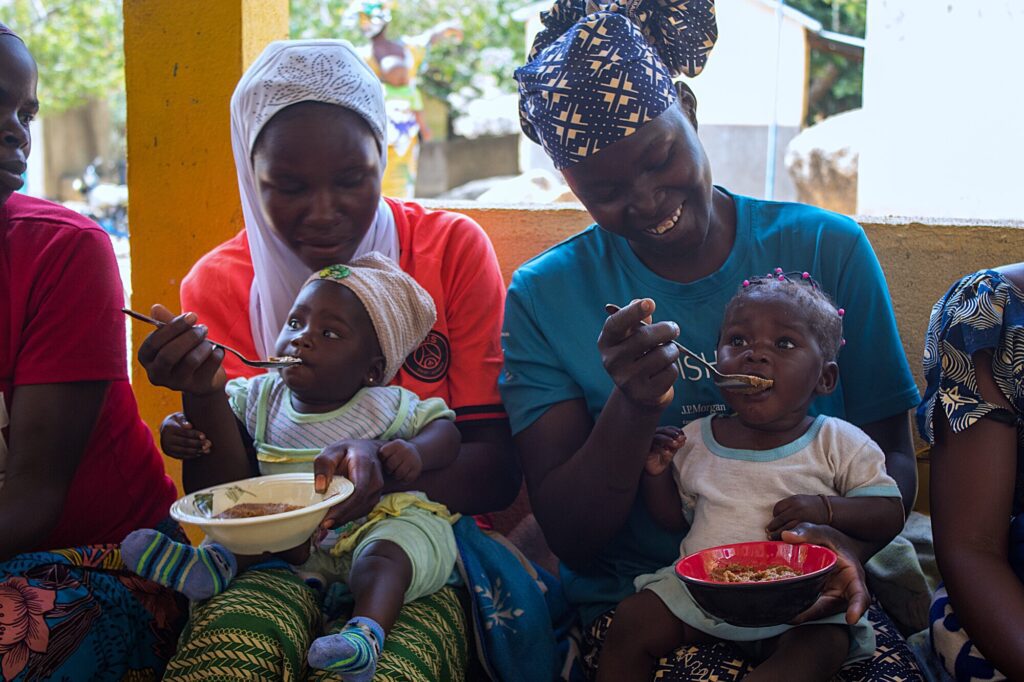
Help ensure children and families have the resources they need to thrive.









